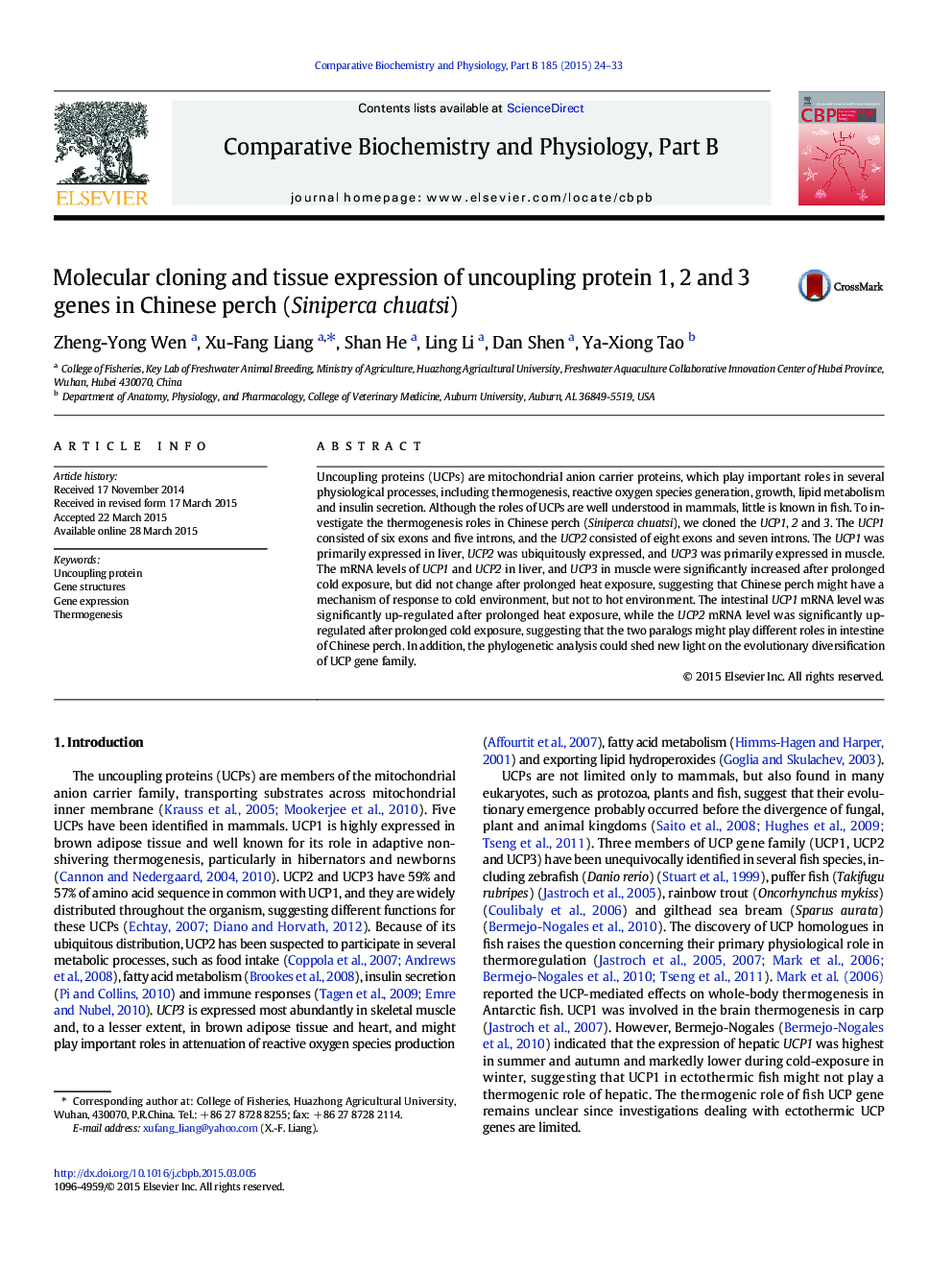| Article ID | Journal | Published Year | Pages | File Type |
|---|---|---|---|---|
| 1975169 | Comparative Biochemistry and Physiology Part B: Biochemistry and Molecular Biology | 2015 | 10 Pages |
Uncoupling proteins (UCPs) are mitochondrial anion carrier proteins, which play important roles in several physiological processes, including thermogenesis, reactive oxygen species generation, growth, lipid metabolism and insulin secretion. Although the roles of UCPs are well understood in mammals, little is known in fish. To investigate the thermogenesis roles in Chinese perch (Siniperca chuatsi), we cloned the UCP1, 2 and 3. The UCP1 consisted of six exons and five introns, and the UCP2 consisted of eight exons and seven introns. The UCP1 was primarily expressed in liver, UCP2 was ubiquitously expressed, and UCP3 was primarily expressed in muscle. The mRNA levels of UCP1 and UCP2 in liver, and UCP3 in muscle were significantly increased after prolonged cold exposure, but did not change after prolonged heat exposure, suggesting that Chinese perch might have a mechanism of response to cold environment, but not to hot environment. The intestinal UCP1 mRNA level was significantly up-regulated after prolonged heat exposure, while the UCP2 mRNA level was significantly up-regulated after prolonged cold exposure, suggesting that the two paralogs might play different roles in intestine of Chinese perch. In addition, the phylogenetic analysis could shed new light on the evolutionary diversification of UCP gene family.
